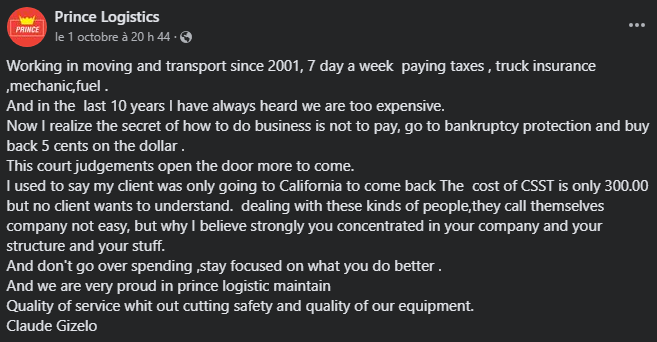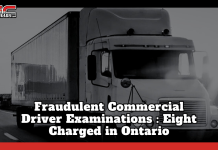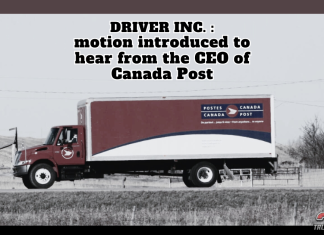Claude Gizelo criticizes questionable practices in the trucking industry. Increasingly, business leaders are speaking out to condemn the “Driver Inc” scheme, which threatens to destabilize the road transport industry in Canada.
This issue is being called out by major carriers who are committed to valuing the trucking profession and offering the best working conditions for their employees. These companies, focused on fairness, find themselves forced to compete with rivals who are merely exploiting a system that the government continues to overlook. To top it all off, the founding family of Pride has just repurchased the company…
Pride Group Logistics, a well-established transport company, was placed under the Companies’ Creditors Arrangement Act (CCAA) due to significant debts amounting to about $1.6 billion. This process allows a struggling company to restructure or sell its assets while being protected from creditors. It was in this context that the founding Johal family repurchased the company for $56 million, far below its original value.
“This is unacceptable. It’s not the principle of bankruptcy that bothers me, but the way they bought it. It should go to market properly, there should be a chance for others to bid on it…” stated Claude Gizelo, owner of Prince Logistics Services, on Truck Stop Quebec. “And on top of that, they knew there was fraud. It’s shocking—how can you buy into a fraud, within a fraud, and not end up in jail? More and more, I think that’s what democracy looks like.”
The Johal family’s acquisition has drawn sharp criticism from within the industry, especially from competitors and creditors. They argue that the sale at such a low price doesn’t reflect the true value of the company, and some have accused the acquisition of being the result of questionable, if not fraudulent, practices.
According to Claude Gizelo, several companies could have shared this bankruptcy. He believes that if he had been offered the company for $60 million, he would have purchased it without hesitation, paying immediately and without financing the acquisition. For him, the issue is that someone took financial advantage of the situation. However, the court ruled that this was the best option to avoid a complete liquidation of Pride and the loss of numerous jobs.
“I have more employees on payroll in my company than Pride. So, they can’t tell me they were trying to save jobs… What jobs? The incorporated drivers, is that what they were trying to save? It doesn’t make any sense,” adds the Prince owner.
The Use of Incorporated Drivers – Driver Inc Scheme
The use of incorporated drivers allows companies to hire drivers as independent contractors rather than regular employees. This practice enables carriers to avoid certain payroll taxes and reduce labor costs, but it has drawn significant criticism. While it offers more flexibility for companies, it also raises equity issues, as it bypasses some tax and legal obligations, further weakening the road transport industry.
Claude Gizelo admits he doesn’t completely reject the Driver Inc model, having used them in the past. “I’m not 100% against incorporations either,” he says, explaining that market pressures forced him to adopt this practice. However, he quickly realized that while these drivers were paid more than those on his payroll, they weren’t contributing properly to taxes. For Claude, this is the real problem: “If they paid their taxes like they should, there wouldn’t be an issue!” he asserts. In light of this, he decided to stop hiring incorporated drivers.
Many transport companies now face the challenge of more and more truck drivers choosing to incorporate themselves to avoid certain tax responsibilities and maximize their earnings. This practice, once seen as primarily an issue in Ontario, is now spreading to other provinces like Quebec and British Columbia. “I have the same problem in Montreal,” Claude explains, noting that some of his employees have left to work as incorporated drivers elsewhere.
For Claude Gizelo, an even more hypocritical form of exploiting the system exists: hiring owner-operators who own several trucks and hire incorporated drivers. This poses an even greater risk, as companies subcontracting to these owners have no control over the drivers they hire or safety checks such as drug tests or criminal background checks. According to Claude, this lack of supervision makes the situation even more dangerous than directly hiring incorporated drivers.
“If the market continues like this and the government doesn’t step in to put an end to it, I’ll go back to hiring incorporated drivers—why not? Instead of hiring a guy who has ten trucks and I have no control over his employees, no drug tests, no criminal checks… That’s even more dangerous.”

Listen to Claude Gizelo’s full interview (French only).














